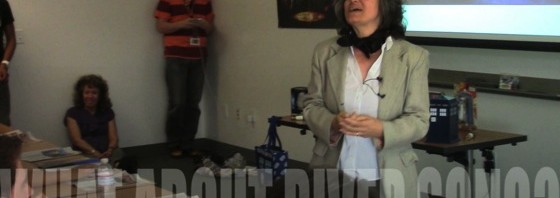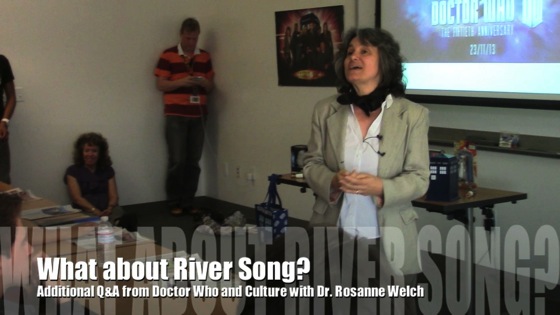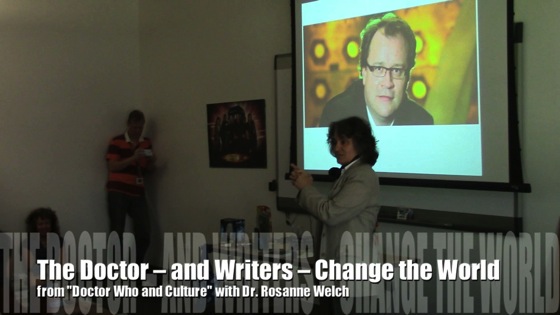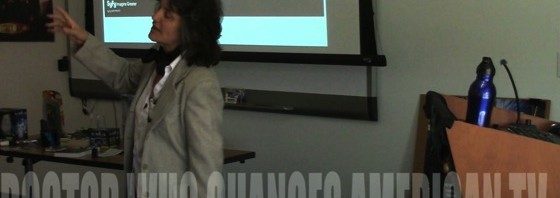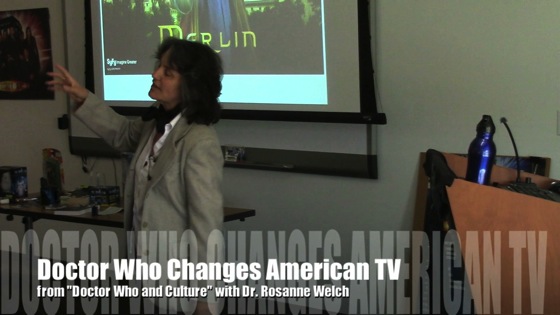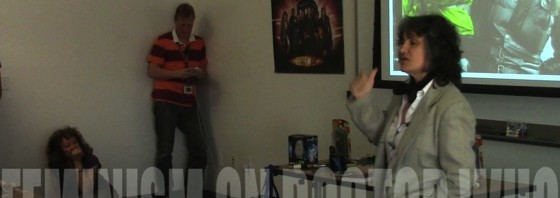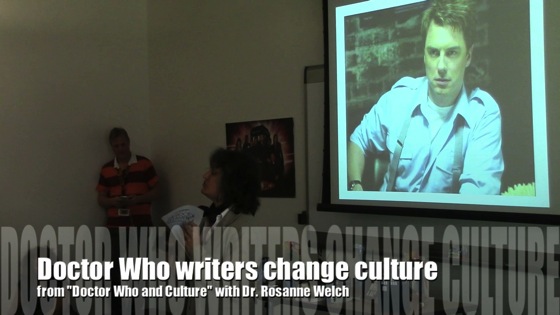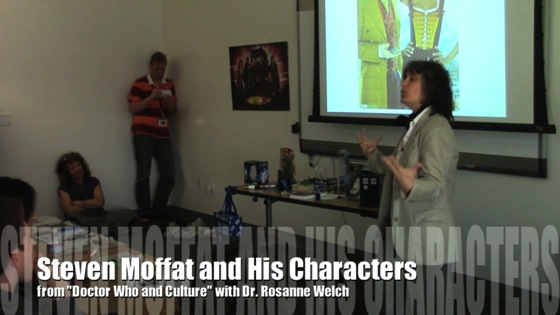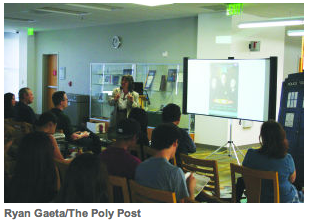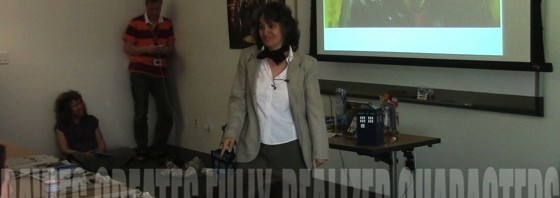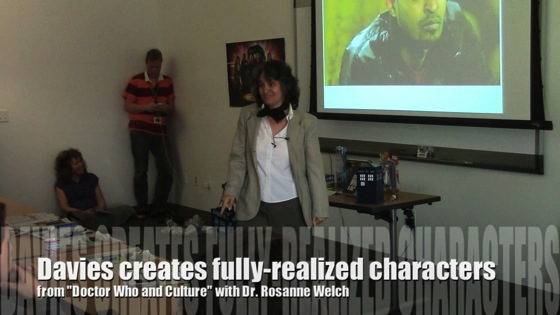Additional Q&A clips from the presentation “Doctor Who and Culture: with Dr. Rosanne Welch
Subscribe to Dr. Welch’s YouTube Channel
Transcript:
Uh, River Song. River is fascinating because — I do love River. If I had time to go off in all the feminist aspects of the show. she’s truly a perfectly feminist character and yet she gets that gorgeous, soft, girl hair. It is so interesting that Brits are able to expect that women can be femmie but also strong and the Americans don’t do that that well. She is also, just to me, an example of how brilliant Stephen Moffat’s plotting is. Because he can take this character across so many episodes and give us this backwards story. I think she is an excellent example. She’s also an example of a Brit actor who had come her and worked in American television for a while. Then went back and did Doctor Who. Of course, now she is back here on Arrow. So she’s a — we have more performers who can cross the creek, if you will, across the pond and that is what she is a good example of. And also she appeared on Colin Ferguson’s show, too. (inaudible) River is hard to talk about because if people don’t know, then you’re giving away too much. So, it just nnnnnnnn, let it be. She’s also an excellent example of how Stephen will plant something and it won’t pay off for 10 episodes (laughter) and Russell could never do that, because he was always writing at the last minute like a crazy person. So, you know, each has their strengths and that is what you have think about. That’s why they worked so well together, obviously.
Dr. Rosanne Welch, Cal Poly Pomona Faculty from the Department of Interdisciplinary General Education discusses Doctor Who and how the show has changed television writing. Doctor Welch will further discuss how society looks at culture and gender roles with the use of the Doctor and his companions’ adventures.
“Natalie Lopez at the CalPoly University Library invited me to do a presentation for National Libraries Week on Doctor Who and Culture so that’s why a group of Whovians from both CalPoly and CSUF gathered in the Special Events room on April 16th. It was wonderful to look out over a sea of t-shirts and other Doctor paraphernalia present among the crowd as I pontificated about what makes Who great – mostly giving me a chance to present a case for the fact that writers make Doctor Who and therefore writers make culture.”
